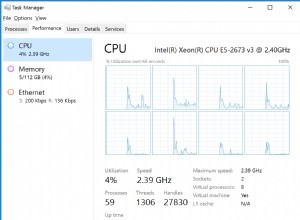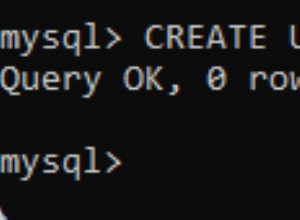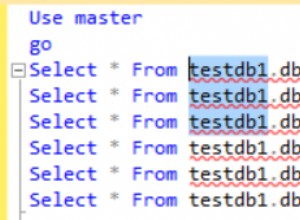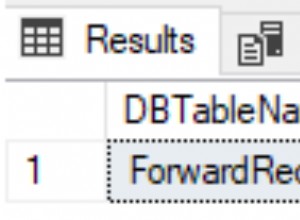यह एक व्यापक धारणा है कि इंडेक्स और टेबल को अलग-अलग टेबल स्पेस में रखने से प्रदर्शन में सुधार होता है। यह अब कई सम्मानित विशेषज्ञों द्वारा एक मिथक माना जाता है (देखें यह आस्क टॉम थ्रेड - "मिथक" खोजें ), लेकिन फिर भी यह एक आम बात है क्योंकि पुरानी आदतें मुश्किल से मरती हैं!
तृतीय पक्ष संपादन
Asktom से निकालें:"इंडेक्स टेबलस्पेस" 2001 से Oracle संस्करण 8.1.6 के लिए प्रश्न
- क्या अनुक्रमणिका को अपने स्वयं के टेबलस्पेस में रखना अभी भी एक अच्छा विचार है?
- क्या यह प्रदर्शन को बढ़ाता है या यह एक पुनर्प्राप्ति समस्या है?
- क्या उत्तर एक मंच से दूसरे मंच में भिन्न है?
उत्तर का पहला भाग
Yes, no, maybe.
The idea, born in the 1980s when systems were tiny and user counts were in the single
digits, was that you separated indexes from data into separate tablespaces on different
disks.
In that fashion, you positioned the head of the disk in the index tablespace and the head
of the disk in the data tablespace and that would be better then seeking 2 times on the
same disk.
Drives back then were really slow at seeking and typically measured in the 10's to 100's
of megabytes (if you were lucky)
Today, with logical volumes, raid, NN gigabyte (nn is rapidly becoming NNN gigabytes)
drives, hundreds/thousands of concurrent users, thousands of tables, 10's of thousands of
indexes - this sort of "optimization" is sort of impossible.
What you strive for today is to be able to manage things, to spread IO out evenly
avoiding hot spots.
Since I believe all things should be in locally managed tablespaces with UNIFORM extent
sizes, I would say that yes, indexes would be in a different tablespace from the data but
only because they are a different SIZE then the data. My table with 50 columns and an
average row size of 4k might belong in a tablespace that has 5meg extents whereas the
index on a single number column might belong in a tablespace with 512k or 1m extents.
I tend to keep my indexes separate from the data but for the above sizing reason. The
tablespaces frequently end up on the same exact mount points. You strive for even io
across your disks and you may end up with indexes and data on the same devices.




